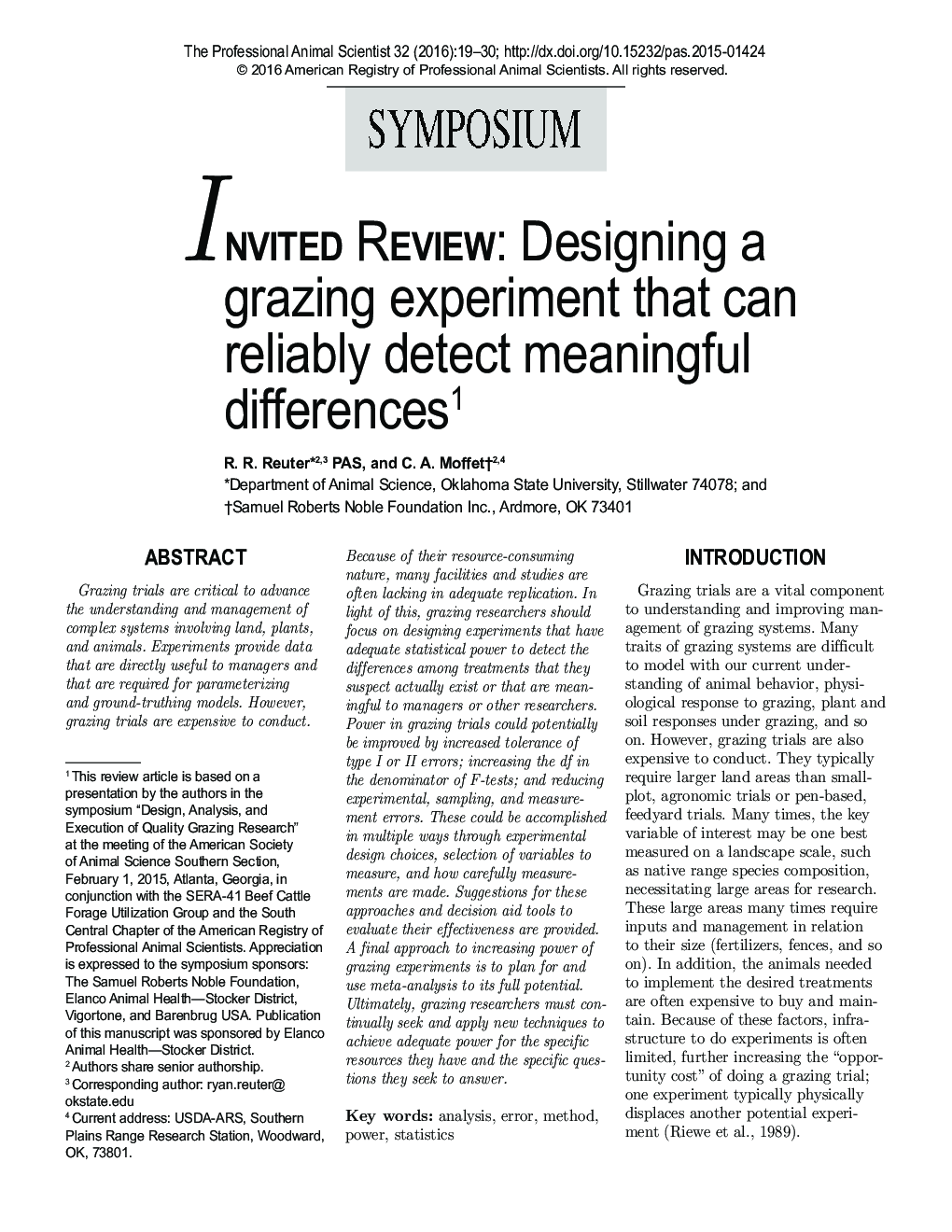| Article ID | Journal | Published Year | Pages | File Type |
|---|---|---|---|---|
| 10161740 | The Professional Animal Scientist | 2016 | 12 Pages |
Abstract
Grazing trials are critical to advance the understanding and management of complex systems involving land, plants, and animals. Experiments provide data that are directly useful to managers and that are required for parameterizing and ground-truthing models. However, grazing trials are expensive to conduct. Because of their resource-consuming nature, many facilities and studies are often lacking in adequate replication. In light of this, grazing researchers should focus on designing experiments that have adequate statistical power to detect the differences among treatments that they suspect actually exist or that are meaningful to managers or other researchers. Power in grazing trials could potentially be improved by increased tolerance of type I or II errors; increasing the df in the denominator of F-tests; and reducing experimental, sampling, and measurement errors. These could be accomplished in multiple ways through experimental design choices, selection of variables to measure, and how carefully measurements are made. Suggestions for these approaches and decision aid tools to evaluate their effectiveness are provided. A final approach to increasing power of grazing experiments is to plan for and use meta-analysis to its full potential. Ultimately, grazing researchers must continually seek and apply new techniques to achieve adequate power for the specific resources they have and the specific questions they seek to answer.
Keywords
Related Topics
Life Sciences
Agricultural and Biological Sciences
Animal Science and Zoology
Authors
R.R. PAS, C.A. Moffet,
